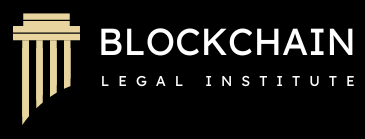Nonprofits venturing into blockchain, cryptocurrency, digital asset fundraising, and related topics should be aware of several key legal areas to ensure compliance and protect their stakeholders:
- Regulatory Compliance: Nonprofits must adhere to relevant financial and securities regulations when engaging in cryptocurrency and digital asset fundraising. Compliance with anti-money laundering (AML) and know-your-customer (KYC) requirements is essential.
- Tax Implications: Cryptocurrency donations may have unique tax implications for both the nonprofit organization and its donors. Understanding tax rules related to accepting and accounting for cryptocurrency contributions is crucial.
- Governance and Transparency: Adopting clear governance structures for managing blockchain-based projects and transparently reporting financial activities is vital to maintain trust among donors and stakeholders.
- Data Protection and Privacy: Dealing with blockchain technology involves handling data, which raises concerns about data privacy and security. Nonprofits must comply with data protection laws and ensure the responsible use of personal information.
- Smart Contracts and Legal Validity: Utilizing smart contracts for fundraising or other purposes requires consideration of their legal enforceability and the potential risks associated with coding errors.
- Intellectual Property: Nonprofits should be cautious about using or creating blockchain-based intellectual property, including digital assets and unique tokens, while ensuring proper licensing and protection.
- Tokenization and Compliance: If nonprofits issue tokens or conduct initial coin offerings (ICOs), they should carefully assess whether these tokens could be considered securities under existing financial regulations.
- Impact and Social Responsibility: With blockchain’s transparency, donors may demand greater accountability and verifiable impact reporting. Nonprofits should strive to demonstrate how funds are used to achieve their mission.
- Cross-Border Transactions: Nonprofits operating in the international space need to navigate cross-border transactions, which may involve different legal frameworks and compliance requirements.
- Contractual Agreements: When engaging with blockchain technology providers or conducting token sales, nonprofits must ensure clear contractual agreements that protect their interests and those of their stakeholders.
- Risk Management: Understanding the risks associated with blockchain and cryptocurrency adoption, such as volatility and security breaches, is essential for informed decision-making.
- Cybersecurity: As nonprofits handle digital assets and donations, implementing robust cybersecurity measures is crucial to safeguarding funds and sensitive information.
Consulting legal experts with expertise in blockchain and cryptocurrency law can assist nonprofits in navigating these complex legal areas, ensuring compliance, and promoting responsible and impactful fundraising practices.
Page Contributor: Patrina Pelton-Smith, The Business of Charity, LLC, at patrina@businessofcharity.com (www.businessofcharity.com)
About Patrina Pelton-Smith, a seasoned professional dedicated to empowering non-profit organizations and for-profit businesses alike. With a wealth of experience spanning two decades, Patrina has become a trusted figure in the industry, making a meaningful impact through her company, The Business of Charity, LLC (BOC). Beyond her extensive experience, Patrina is an early adopter of cutting- edge AI technology in non-profit operations. She understands the power of AI to revolutionize grant writing, fundraising strategies, donor development, and digital assets. By embracing innovative solutions, Patrina is helping her clients maximize their potential and achieve their goals more efficiently in today’s digital age.
How To Use Digital Assets To Fundraise For Your Non-Profit – Available on Amazon – A Book For Non Profits To Learn How To Fundraise With Digital Assets & Artificial Intelligence. A must have resource for all non profit boards as they navigate the blockchain.
